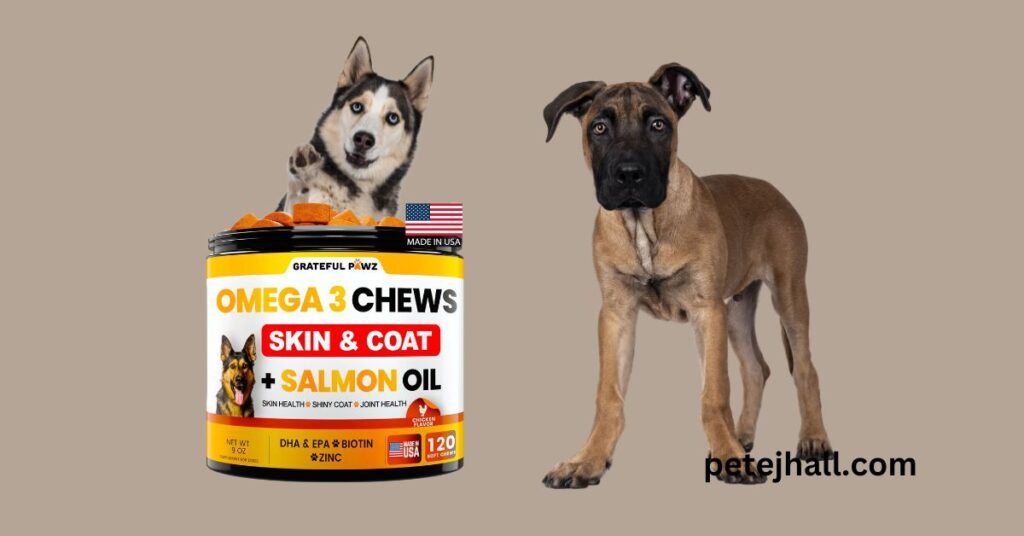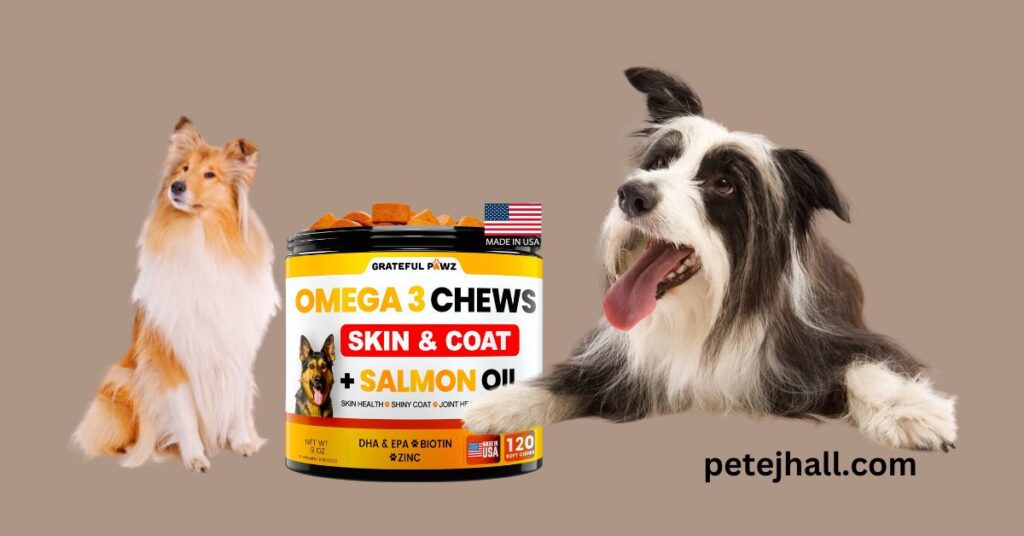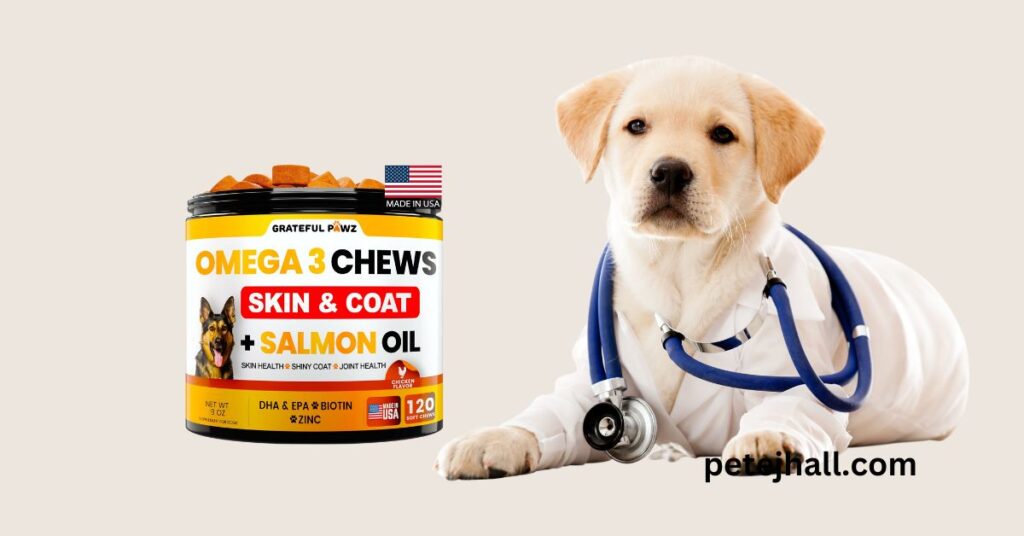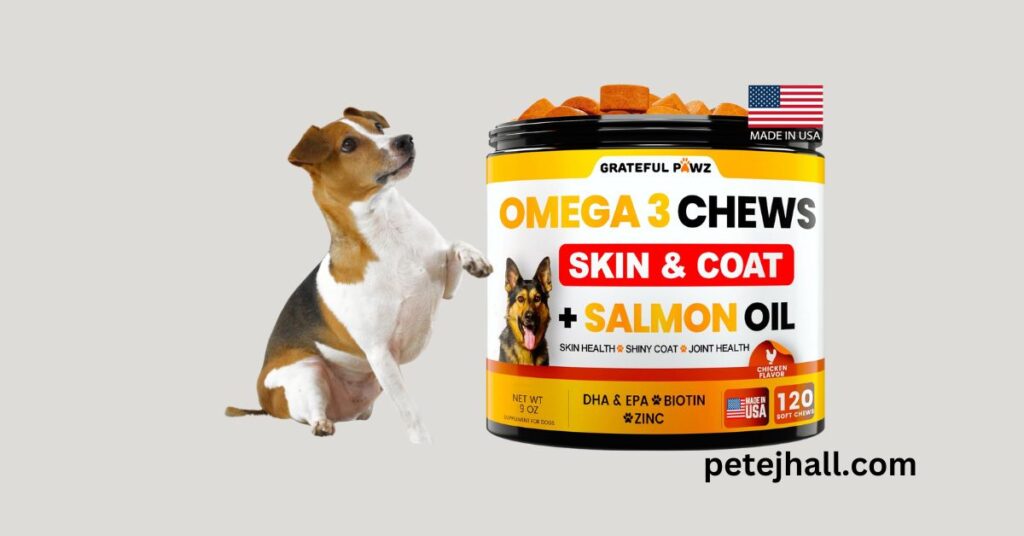Zinc is something your dog needs for their health. Often overlooked in discussions about pet nutrition, zinc plays a crucial role in maintaining the immune system, skin health, and various metabolic functions. This article covers everything you should know about zinc in dog food, including why it is important, how much your pet needs, and what to do if they seem lacking.
Importance of Zinc for Dogs
Zinc is one of many trace minerals that dogs need to perform a multitude of biological tasks. This vital nutrient
- Increases Immunity: When dogs receive the right amount of zinc, their white blood cell production increases, leading to improved immune responses.
- Immune System Support: Indications suggest that hemp oil may boost your dog’s immune system, supporting skin health and healing.
- The mineral is essential to the functions of more than 100 enzymes and supports your dog’s metabolism, which in turn helps him produce energy.
- Boosts Reproductive Health: It is widely known that zinc contributes significantly to overall health for breeding dogs by promoting reproductive function.
Zinc-deficient dogs may be prone to everything from just a little skin irritation all the way up through some pretty significant systemic issues.
How Zinc Works in Your Dog’s Body
It works at the cellular level in that it promotes normal enzyme function. It helps with DNA synthesis and is essential to producing collagen, which gives skin and connective tissues their strength. Zinc is important for the absorption and metabolism of essential fatty acids, which are vital to the maintenance of healthy skin and coats.
How Much Zinc Do Dogs Need?

While a dog’s specific needs will largely depend on the individual, the following factors can influence them:
- Dogs should receive zinc supplements based on their size and breed.
- Phases of Life: Puppies, pregnant or nursing dogs, and senior pets may need more zinc.
- ARREST DIET: Dogs fed a homemade diet or diets without zinc supplements may require additional dietary zinc.
AAFCO also says that adult dog food should have 120 mg/kg of zinc on a dry matter basis. The exact answer for every dog can differ, so it is wise to consult with a vet prior to making any dietary changes.
Symptoms of Zinc Deficiency in Dogs
- Add description here: => Zinc deficiency. It is presented mainly in:
- You may experience dry, scaly skin, hair loss, or a dull coat.
- Delayed Wound Healing: Dogs that are zinc deficient may have delayed closure of their wounds.
- A low immune system can lead to frequent infections, colds, and fatigue.
- Changes in behavior, such as increased irritability or decreased energy with your pet, can occur.
For example, certain dog breeds, such as Siberian Huskies and Alaskan Malamutes, have a genetic propensity to zinc deficiency. Particular attention is required for these dogs to ensure they are getting enough zinc.
Dog food ingredients are high in zinc.

A natural source of zinc can also be found in some high-quality dog food. I listed some quick sources of zinc in there lots of commercial-grade dog food if you do buy it:
- Meat: Especially foods with high zinc content, including red meats such as beef, pork, and lamb;
- Fish: Not only does fish offer zinc, which is good for the skin and coat, but it also contains omega-3 fatty acids [31] that help reduce inflammatory responses.
- Poultry: Chicken and turkey are rich forms of zinc-containing lean protein.
- Lean red meat, poultry, and fish: Zinc is abundant in these foods, along with various other vitamins and minerals. Eggs are a nutrient-dense option that includes zinc.inc.
- Whole Grains: Cereals like oats, quinoa, and barley have a good amount of zinc.
Types of Zinc in Dog Food
Dogs typically consume zinc in two primary forms:
Water-soluble zinc sulfate is often easily absorbed in the dog’s body.
The attachment of zinc to protein molecules may facilitate its absorption and utilization by the body.
Since chelated zinc is the most bioavailable form of dietary zinc and can positively impact both overall Zn intakes and health, some premium dog food manufacturers include it in their ingredient panel.
One risk that zinc poses when you have been following an extremely opposite diet is the possibility of over receiving it from your dog food.
Even though a deficiency in zinc is dangerous, zinc toxicity can also cause harm. Signs of zinc toxicity
- Nausea and loose stools are some of the earliest signs you’ve had too much zinc.
- Lethargy: Dogs suffering from zinc toxicity may become weak and tired.
- Organ Damage: Continuous exposure to excessive amounts of zinc can result in liver and kidney damage.
Proper nutrition is the best way to guard against these issues, and knowing that your dog’s food meets AAFCO guidelines will help.
Right Dog Food with Zinc

Avoid pet foods that fail to meet the nutrition levels established by AAFCO and do not have meat as one of its primary ingredients. This guarantees the food’s inherent zinc content, in addition to any added mineral supplements. The following are top-quality dog food brands that contain the appropriate amount of zinc:
- Blue Buffalo boasts a plethora of grain-free and whole-grain choices featuring all-natural zinc sources.
- Purina Pro Plan has zinc proteinase, which can help support absorption of the mineral.
- Wellness Core: The difference lies in the use of chelated minerals to support overall health, along with the addition of high-quality protein sources.
So, if you read through that list of ingredients and understand where your dog is sourcing zinc in their food, then it should be easier to figure out whether or not your pet needs a new diet.
Is Zinc Supplementation Necessary?
Dogs usually get all their zinc from a well-balanced diet. However, if you prepare your dog’s food at home or suspect a deficiency in the diet, you may need to consider supplementation. Before giving any zinc supplements, always check with your veterinarian, as the dose must be exact to prevent toxicity.
Common supplements may contain zinc gluconate and/or zinc methionine, both of which are bioavailable to some extent, as well as zinc salt chelates, depending on the administration at doses commensurate with human exposure.

Zinc in Homemade Dog Food
Making dog food at home presents a significant challenge. Eat meat, fish, and eggs daily because they are the biggest sources of zinc. If you do this, consult with a veterinary nutritionist to help develop a balanced meal plan.
Conclusion
Zinc: Zinc, while a relatively minor mineral in your dog’s diet overall, plays an important role in its immune health and skin integrity as well as its metabolism. Preventing a zinc deficiency in your dog through superior food is essential to their wellbeing and happiness. In keeping with your dog’s special requirements, always check in with a vet before making any changes to ensure you feed the right amount of zinc yourself, especially for known zinc-sensitive breeds or on medical diets.
Zinc may not be as well-known, but with the appropriate balance of nutrients, it helps keep your dog a healthy companion throughout its life.
FAQ: Zinc in Dog Food: The Essential Guide for Pet Health
What effect does zinc deficiency have on my dog?
What health issue can be caused by zinc deficiency? A zinc deficiency can lead to inadequately functioning skin and coat, a reduced immune systole severe cases can lead to chronic infections, hormonal imbalances, and behavioral changes nces, and changes in behavior.
Can I give my pet human zinc supplements?
It’s possible for human zinc supplements to exceed the safe dosage for dogs or have a different absorption rate, which could potentially lead to toxicity. Please speak to your vet for these and other pet-safe zinc solutions.
Is zinc deficiency more common in certain dog breeds?
Are there breeds such as huskies and malamutes that are more prone to zinc deficiency, or do they require special dietary considerations, as you suggested?
How do I know if my dog is getting enough zinc in his food?
What type of cat foods should I be looking for when it comes to zinc? A: Seek out AAFCO-approved foods because they have the standard guidelines in force. Make sure to scrutinize the ingredients for natural zinc sources, particularly those derived from meat and fish.
Is zinc in dog food controlled?
AAFCO does include a recommended minimum amount of zinc in their guidelines for dog food, but to ensure it meets your pet’s specific needs and is safe for general consumption, consult your veterinarian.

